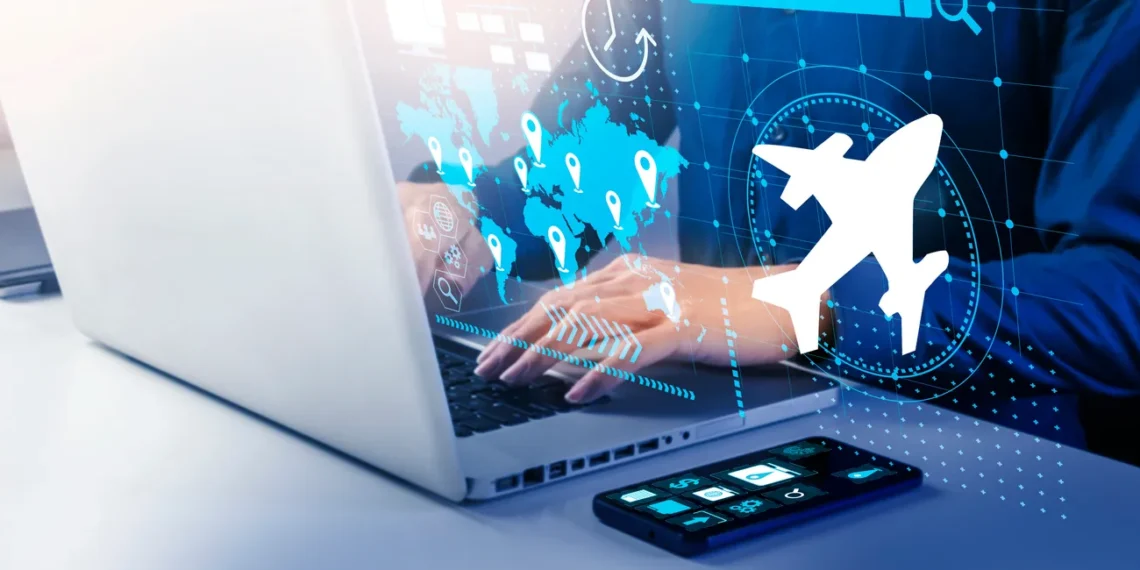Harnessing GPS: The Backbone of Modern Travel Navigation
GPS technology has revolutionized travel, offering unparalleled navigation capabilities and enhancing the overall travel experience for millions worldwide. It’s more than just a map; it’s a comprehensive tool.
1. The Evolution of GPS in Travel
From bulky handheld devices to integrated smartphone apps, GPS has become increasingly accessible and user-friendly. Early GPS units were primarily used by professionals like surveyors and the military. Now, with advancements in technology, GPS is readily available on smartphones and in-car navigation systems, offering turn-by-turn directions and real-time traffic updates. This accessibility has transformed how people plan and execute their journeys, making travel more efficient and less stressful. The integration of GPS with other technologies, such as augmented reality, promises even more immersive and intuitive navigation experiences in the future.
2. GPS and Enhanced Safety
GPS plays a crucial role in enhancing travel safety. Features like real-time tracking allow family and friends to monitor a traveler’s progress, providing peace of mind. In emergency situations, GPS can be used to pinpoint a traveler’s location, enabling faster and more effective rescue efforts. Many navigation apps also offer safety alerts, warning users about potential hazards like accidents or road closures. Furthermore, GPS data can be used to analyze driving behavior and identify areas where drivers may need to improve their skills, contributing to safer roads for everyone.
3. Overcoming Challenges and Limitations
Despite its benefits, GPS technology has its limitations. Signal accuracy can be affected by environmental factors like tall buildings and dense forests. Battery drain is also a concern, especially during long journeys. To mitigate these challenges, developers are constantly working on improving GPS accuracy and efficiency. Additionally, users can take steps to conserve battery life, such as downloading offline maps and using power-saving modes. The development of alternative positioning systems, such as Galileo and BeiDou, also provides redundancy and enhances the reliability of navigation services.
Revolutionary Travel Apps: Enhancing User Experience and Convenience
1. Seamless Booking and Planning
Travel apps have revolutionized the booking process, offering users a seamless experience from start to finish. With just a few taps, travelers can compare prices for flights, hotels, and rental cars, making informed decisions based on their budget and preferences. Apps like Skyscanner and Kayak aggregate data from multiple sources, providing a comprehensive overview of available options. Furthermore, many apps offer features such as price alerts and flexible date searches, helping users find the best deals and save money on their travel expenses. This ease of booking empowers travelers to take control of their itineraries and tailor their trips to their individual needs.
2. Enhanced Navigation and Exploration
Gone are the days of unfolding paper maps and relying on outdated guidebooks. Travel apps provide real-time navigation, offline maps, and detailed information about local attractions, restaurants, and points of interest. Apps like Google Maps and Citymapper help travelers navigate unfamiliar cities with ease, offering turn-by-turn directions, public transportation schedules, and even walking routes. Moreover, many apps incorporate user reviews and ratings, allowing travelers to discover hidden gems and avoid tourist traps. This enhanced navigation and exploration capabilities empower travelers to venture off the beaten path and experience destinations like a local.
3. Personalized Recommendations and Experiences
Travel apps are increasingly leveraging data and artificial intelligence to provide personalized recommendations and experiences. By analyzing user preferences, past travel history, and real-time location data, apps can suggest activities, restaurants, and attractions that are tailored to individual interests. Apps like Culture Trip and Spotted by Locals curate local experiences and hidden gems, helping travelers discover authentic and unique aspects of their destinations. This personalized approach to travel enhances the overall experience, making it more meaningful and memorable. Furthermore, some apps offer language translation tools and currency converters, facilitating communication and transactions in foreign countries.
E-tickets and Contactless Check-ins: Streamlining Travel Processes
E-tickets and contactless check-ins have revolutionized the travel industry, offering convenience and efficiency. These technologies not only save time but also enhance the overall travel experience by minimizing physical contact and reducing paper waste.
1. The Rise of E-tickets
E-tickets have largely replaced traditional paper tickets. Instead of a physical document, passengers receive a digital confirmation, usually via email or mobile app. This e-ticket contains all the necessary flight information, including booking reference, flight number, and seat assignment. Airlines benefit from reduced printing and distribution costs, while travelers enjoy the convenience of not having to worry about losing or damaging a physical ticket. Furthermore, e-tickets facilitate online check-in, enabling passengers to select seats and print boarding passes from home or their mobile devices.
2. Contactless Check-ins at Airports
Contactless check-in solutions are becoming increasingly prevalent at airports. These systems allow travelers to check in for their flights, drop off baggage, and pass through security without interacting with airport staff. Kiosks equipped with touchscreens and scanners enable passengers to scan their passports or boarding passes and print baggage tags. Biometric technology, such as facial recognition, is also being integrated into check-in processes to further expedite the process and minimize physical contact. This technology reduces waiting times and enhances hygiene.
3. Mobile Boarding Passes
Mobile boarding passes are digital versions of traditional boarding passes that can be stored on smartphones or other mobile devices. Passengers can access their boarding passes through airline apps or mobile wallets. At the airport, travelers simply present their mobile boarding pass to security personnel and gate agents for scanning. This eliminates the need for printing paper boarding passes, contributing to environmental sustainability. Mobile boarding passes also offer added convenience, as they can be easily accessed even without an internet connection after being downloaded.
Virtual Tours: Redefining Exploration Through Immersive Technology
Virtual tours leverage cutting-edge technology to offer immersive, interactive experiences, allowing users to explore destinations remotely. This innovative approach is reshaping how people plan travel and experience culture.
1. The Rise of Immersive Experiences
Virtual tours have evolved significantly, moving beyond simple panoramic images to incorporate 360-degree videos, interactive maps, and even augmented reality (AR) elements. This provides users with a richer, more engaging experience that closely mimics being physically present at a location. The adoption of virtual reality (VR) headsets further enhances the sense of immersion, creating realistic simulations of travel destinations. This technology is becoming increasingly accessible, driving wider adoption across various sectors.
2. Benefits for Travelers and Businesses
For travelers, virtual tours offer a risk-free way to preview destinations, assess accessibility, and make informed decisions about their travel plans. Businesses, such as hotels, museums, and real estate agencies, can use virtual tours to showcase their offerings to a global audience, increasing engagement and driving bookings. The ability to explore a space remotely can also save time and money for both travelers and businesses, reducing the need for preliminary site visits.
3. Technological Advancements Fueling Growth
Advancements in areas like 3D scanning, high-resolution imaging, and cloud computing are making virtual tours more realistic and accessible than ever before. Improved bandwidth and faster internet speeds are also crucial, ensuring smooth streaming and seamless navigation. The development of user-friendly platforms and software tools has simplified the creation and distribution of virtual tours, empowering businesses to create their own immersive experiences.
4. Applications Beyond Tourism
While tourism is a primary application, virtual tours are finding uses in diverse fields. Educational institutions use them for remote learning, allowing students to explore historical sites and museums from their classrooms. Real estate agents use them to showcase properties to potential buyers, while healthcare providers offer virtual tours of their facilities to ease patient anxiety. The versatility of this technology makes it a valuable tool across various sectors.
Online Booking Platforms: Transforming Trip Planning and Reservations
1. Enhanced Convenience and Accessibility
Online platforms offer a centralized hub for comparing flights, hotels, rental cars, and activities. Users can access these services 24/7 from any location with an internet connection, eliminating the need to visit multiple travel agencies or call different providers. This accessibility empowers travelers to plan trips at their own pace and according to their specific needs and preferences. Furthermore, mobile apps extend this convenience to smartphones and tablets, making travel planning even more seamless and on-the-go.
2. Price Comparison and Transparency
One of the most significant advantages of online booking platforms is the ability to easily compare prices from various providers. These platforms aggregate data from airlines, hotels, and other travel services, presenting users with a clear overview of available options and their respective costs. This transparency allows travelers to identify the most affordable deals and make informed decisions based on their budget. Price comparison tools and features, such as fare alerts and flexible date searches, further enhance the ability to find the best possible prices.
3. User Reviews and Ratings
Online booking platforms typically incorporate user reviews and ratings, providing valuable insights into the quality and reliability of travel services. Travelers can read about the experiences of other users, gaining a better understanding of what to expect from a particular hotel, airline, or tour operator. These reviews often cover aspects such as cleanliness, service quality, and overall satisfaction, helping travelers make more informed choices and avoid potential disappointments. The collective wisdom of the crowd can be a powerful tool for identifying reputable and reliable travel providers.
4. Personalization and Customization
Many online booking platforms offer personalization features that cater to individual traveler preferences. Users can save their preferred airlines, hotels, and travel destinations, allowing the platform to provide tailored recommendations and search results. These platforms also often integrate with loyalty programs, enabling travelers to earn and redeem points for flights, hotels, and other travel-related services. By understanding user behavior and preferences, online booking platforms can create more personalized and relevant travel experiences.
Q&A
Question 1: What are the key features of modern GPS technology that have revolutionized travel navigation?
Answer: Modern GPS technology offers real-time data including current location, traffic conditions, and estimated arrival times. It provides offline maps for areas with limited or no cellular service. It also includes a vast database of Points of Interest (POIs) like restaurants and hotels, and supports multiple transportation modes (walking, cycling, public transit). These features enable informed route choices, optimized travel time, and easier discovery of local attractions.
Question 2: How have travel apps enhanced the user experience and convenience of planning and booking trips?
Answer: Travel apps streamline the booking process by allowing users to compare prices for flights, hotels, and rental cars easily. They provide real-time navigation, offline maps, and information on local attractions. Many apps offer personalized recommendations based on user preferences and past travel history, enhancing the overall travel experience and making planning more efficient. Features like price alerts and flexible date searches help users save money.
Question 3: What are the benefits and limitations of e-tickets and contactless check-ins at airports?
Answer: E-tickets and contactless check-ins offer convenience, efficiency, and reduced physical contact. They save time by eliminating paper tickets and long queues, and reduce paper waste. However, reliance on technology means potential issues with technology malfunctions or internet connectivity. Biometric technology, while speeding up the process, raises privacy concerns for some users.






